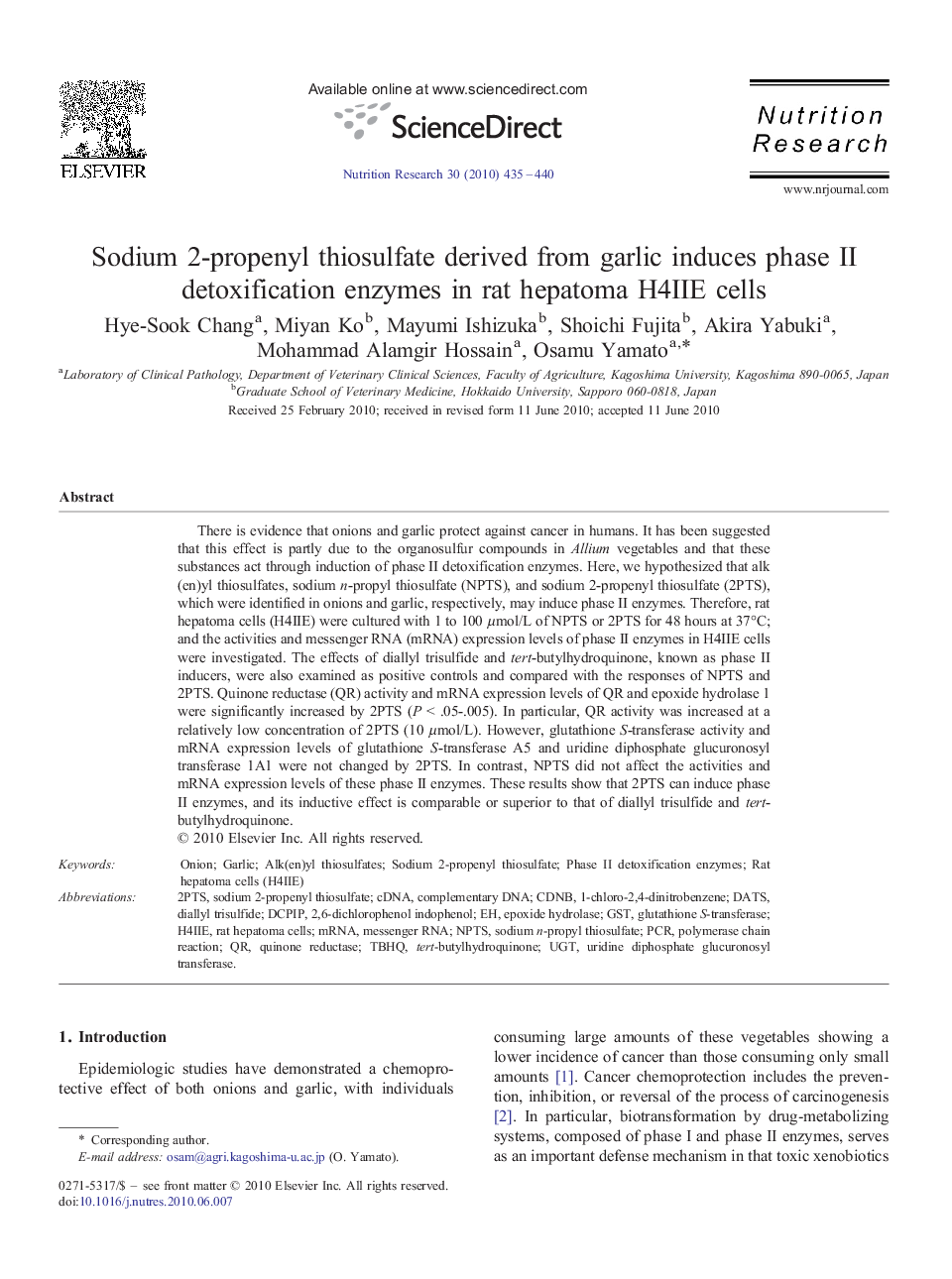| Article ID | Journal | Published Year | Pages | File Type |
|---|---|---|---|---|
| 2809437 | Nutrition Research | 2010 | 6 Pages |
There is evidence that onions and garlic protect against cancer in humans. It has been suggested that this effect is partly due to the organosulfur compounds in Allium vegetables and that these substances act through induction of phase II detoxification enzymes. Here, we hypothesized that alk(en)yl thiosulfates, sodium n-propyl thiosulfate (NPTS), and sodium 2-propenyl thiosulfate (2PTS), which were identified in onions and garlic, respectively, may induce phase II enzymes. Therefore, rat hepatoma cells (H4IIE) were cultured with 1 to 100 μmol/L of NPTS or 2PTS for 48 hours at 37°C; and the activities and messenger RNA (mRNA) expression levels of phase II enzymes in H4IIE cells were investigated. The effects of diallyl trisulfide and tert-butylhydroquinone, known as phase II inducers, were also examined as positive controls and compared with the responses of NPTS and 2PTS. Quinone reductase (QR) activity and mRNA expression levels of QR and epoxide hydrolase 1 were significantly increased by 2PTS (P < .05-.005). In particular, QR activity was increased at a relatively low concentration of 2PTS (10 μmol/L). However, glutathione S-transferase activity and mRNA expression levels of glutathione S-transferase A5 and uridine diphosphate glucuronosyl transferase 1A1 were not changed by 2PTS. In contrast, NPTS did not affect the activities and mRNA expression levels of these phase II enzymes. These results show that 2PTS can induce phase II enzymes, and its inductive effect is comparable or superior to that of diallyl trisulfide and tert-butylhydroquinone.
